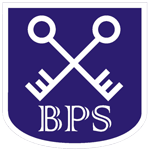Curriculum Rationale
Geography
We believe that geography provides a way for children to make sense of the world around them. Pupils are given opportunities to learn about their world; to develop skills, knowledge and vocabulary. Pupils at this school will have access to geography appropriate for their age and ability that follows the guidelines of the National Curriculum. We use the Cornerstones curriculum to ensure coverage and progression.
History
The aim of history teaching is to stimulate the children’s interest and understanding about the life of people who lived in the past. We teach children a sense of chronology. They learn to value their own and other people’s cultures in modern multicultural Britain. We teach children to understand how events in the past have influenced our lives today; we also teach them to investigate these past events and, by so doing, to develop the skills of enquiry, analysis, interpretation and problem-solving. We use the Cornerstones curriculum to ensure coverage and progression.
Intent: We ensure delivery of robust knowledge, confident enquiry skills, the ability to interpret a range of sources, collect and analyse data and to communicate findings in both written and oral form.
Implementation: We provide pupils with an appreciation of our history and exploration through time with a clear understanding of their place within it. The geography curriculum will be taught in response to questions which are aimed to be challenging, inspiring, creative, nurturing and encourage active learning.
Impact: Our learners are equipped with the geographical and historian’s skills and knowledge that will enable them to be ready for the secondary curriculum and for life as an adult in the wider world.
Department of Education’s Statutory Guidance on the History Curriculum.
Geography
A high-quality geography education should inspire in pupils a curiosity and fascination about the world and its people that will remain with them for the rest of their lives. Teaching should equip pupils with knowledge about diverse places, people, resources and natural and human environments, together with a deep understanding of the Earth’s key physical and human processes. As pupils progress, their growing knowledge about the world should help them to deepen their understanding of the interaction between physical and human processes, and of the formation and use of landscapes and environments. Geographical knowledge, understanding and skills provide the framework and approaches that explain how the Earth’s features at different scales are shaped, interconnected and change over time.
History
A high-quality history education will help pupils gain a coherent knowledge and understanding of Britain’s past and that of the wider world. It should inspire pupils’ curiosity to know more about the past. Teaching should equip pupils to ask perceptive questions, think critically, weigh evidence, sift arguments, and develop perspective and judgement. History helps pupils to understand the complexity of people’s lives, the process of change, the diversity of societies and relationships between different groups, as well as their own identity and the challenges of their time.
- Geography progression example (79.18KB)
- History progression example (93.40KB)
